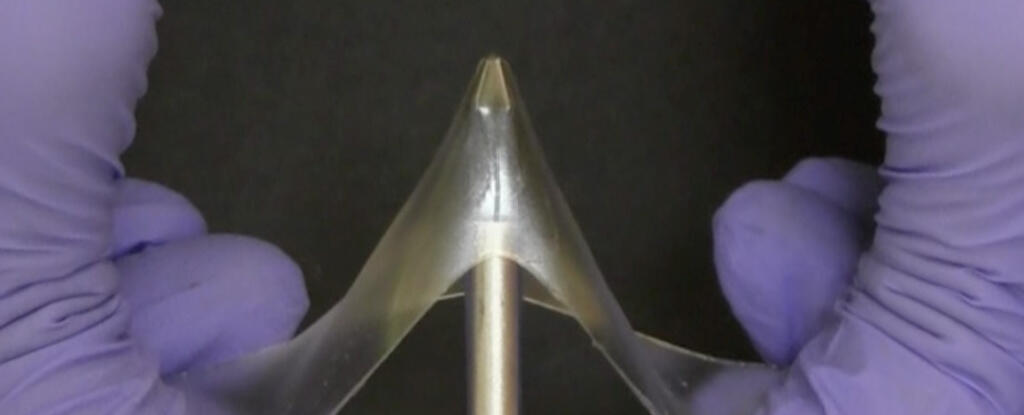Getting your Trinity Audio player ready...
Researchers at North Carolina State University have developed a new class of materials called "glassy gels" that combine the hardness of glass with the stretchability of gels.
Glassy gels are produced by combining liquid precursors of glassy polymers with an ionic liquid and then curing with UV light or 3D printing. The ionic liquid pushes apart molecular chains, allowing stretchability, while attractive forces give them a glassy quality.
Despite their significant liquid content (50-60%), glassy gels do not dry out and have impressive adhesive, self-healing, shape-memory and regenerative properties. They can be deformed up to 670% strain with rapid recovery, are not prone to evaporation, and can contain a high percentage of water, making them promising for practical applications like flexible electronics, wearable devices, batteries, 3D printing, soft robotics, medical devices and industrial adhesives.
The manufacturing process of glassy gels is straightforward and cost-effective compared to other industrial methods, but not all polymers are suitable, and the reasons behind their high adhesiveness are still speculative. More testing and research are needed to fully understand their formation and properties.
This article was written in collaboration with Generative AI news company Alchemiq
Sources: PopSci, New Scientist, List23, BGR, Green Car Congress, SRQ Backlot, Technology Networks, Futurity, AZoM, Interesting Engineering, The Debrief, and ScienceAlert.


